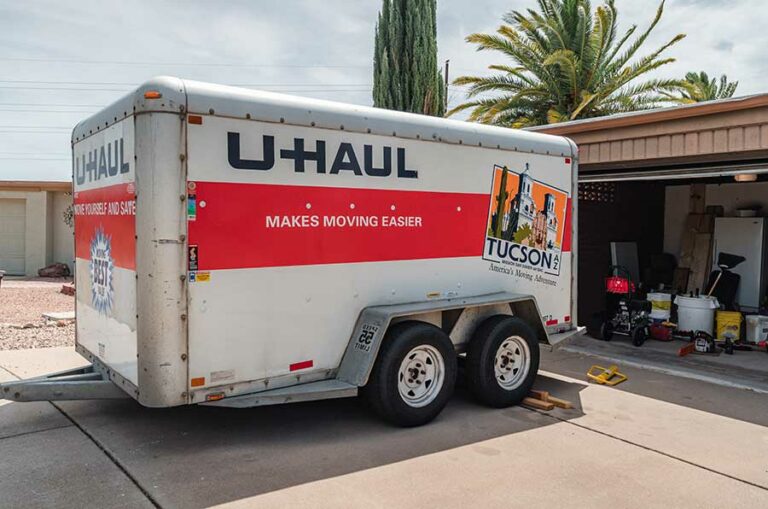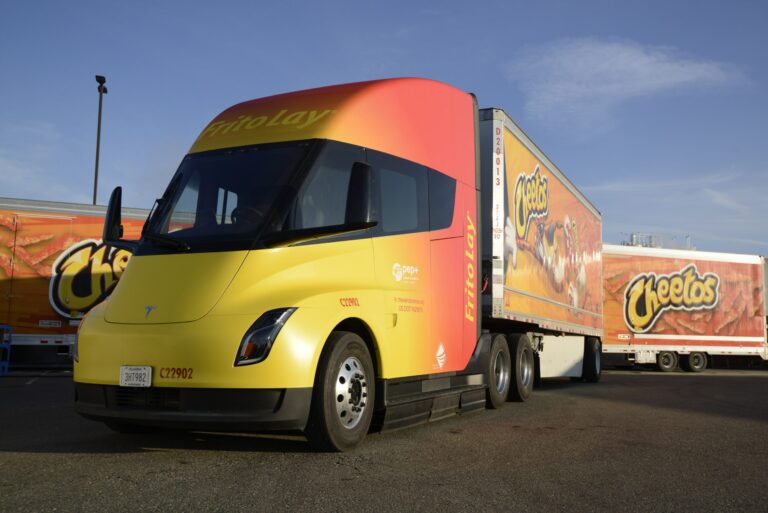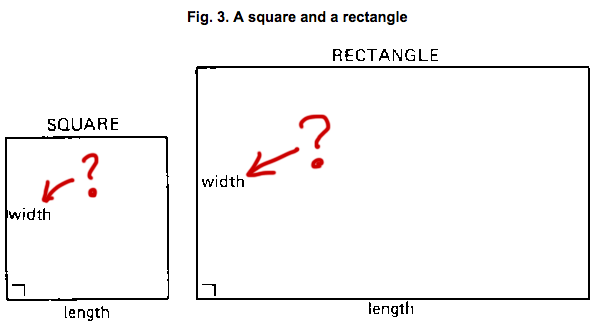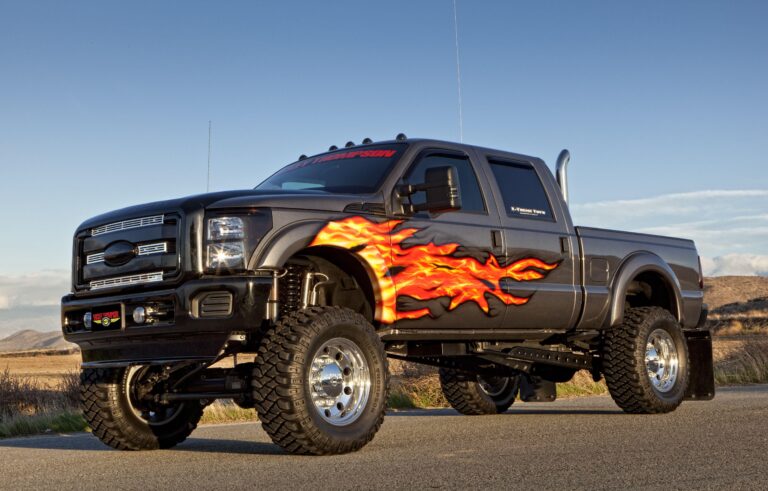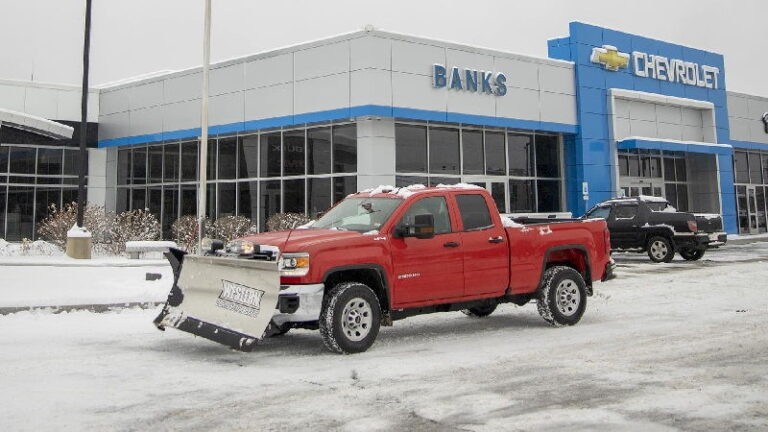U-Haul Trailers: Your Comprehensive Guide to Hauling with Confidence
U-Haul Trailers: Your Comprehensive Guide to Hauling with Confidence cars.truckstrend.com
Moving, decluttering, or transporting large items often presents a significant logistical challenge. While full-size moving trucks are an option, they’re not always necessary or the most economical choice. This is where U-Haul trailers step in, offering a flexible, cost-effective, and surprisingly versatile solution for a wide array of hauling needs. From assisting with cross-country relocations to simply moving a new piece of furniture across town, U-Haul trailers have become synonymous with accessible, DIY transportation. This comprehensive guide will explore everything you need to know about U-Haul trailers, empowering you to make informed decisions for your next hauling project.
What Are U-Haul Trailers?
U-Haul Trailers: Your Comprehensive Guide to Hauling with Confidence
U-Haul trailers are a core component of U-Haul’s extensive rental fleet, designed to be towed behind a personal vehicle. They provide additional cargo space or specialized transport for vehicles, offering a practical alternative to renting a full moving truck. U-Haul’s commitment to accessibility means their trailers are available at thousands of locations across North America, making them a go-to choice for individuals and families seeking convenient and affordable hauling solutions. Their diverse range ensures there’s a trailer suited for almost any towing requirement, from small household items to entire vehicles.
Types of U-Haul Trailers
U-Haul offers several distinct types of trailers, each designed for specific hauling tasks. Understanding the differences is crucial for selecting the right equipment for your needs.
1. Cargo Trailers (Enclosed)
These are the most common type, providing enclosed, weather-protected space for your belongings. They are ideal for moving furniture, boxes, and other household goods, keeping them safe from the elements and secure during transit.
- 4’x8′ Cargo Trailer: Perfect for small moves, dorm rooms, or hauling a few pieces of furniture. Capacity is roughly equivalent to a pickup truck bed.
- 5’x8′ Cargo Trailer: A popular choice for one-bedroom apartments or larger items. Offers more volume than the 4×8.
- 5’x10′ Cargo Trailer: Suited for larger apartments or small homes, providing ample space for furniture and boxes.
- 6’x12′ Cargo Trailer: The largest enclosed option, often used for two-bedroom homes or significant hauls. Features a low loading deck for easier access.
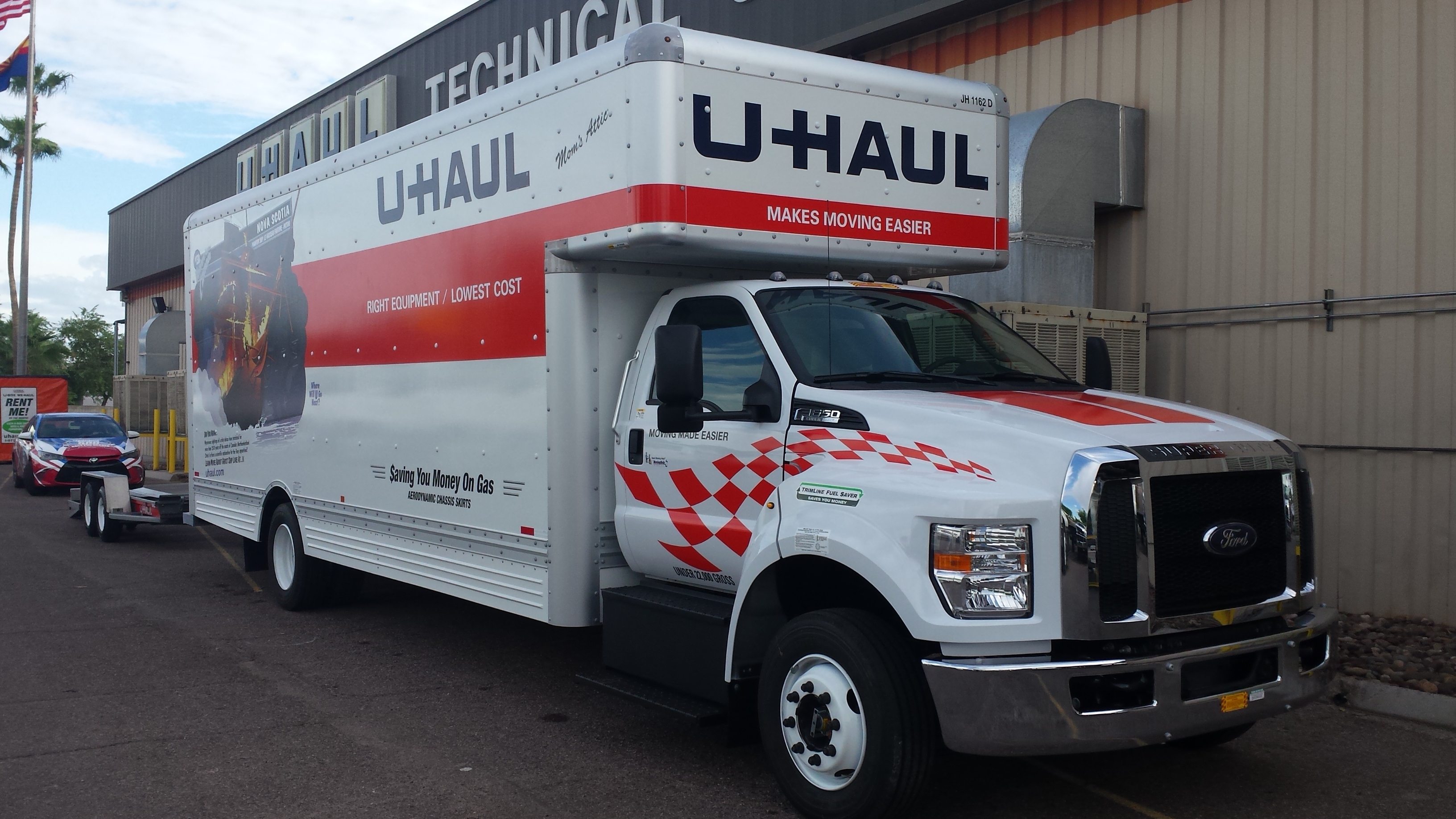
2. Utility Trailers (Open)
Utility trailers are open-top trailers with low sides, designed for hauling irregularly shaped items, landscaping materials, construction debris, or anything that doesn’t require protection from the elements. They often come with a ramp for easy loading of wheeled items.
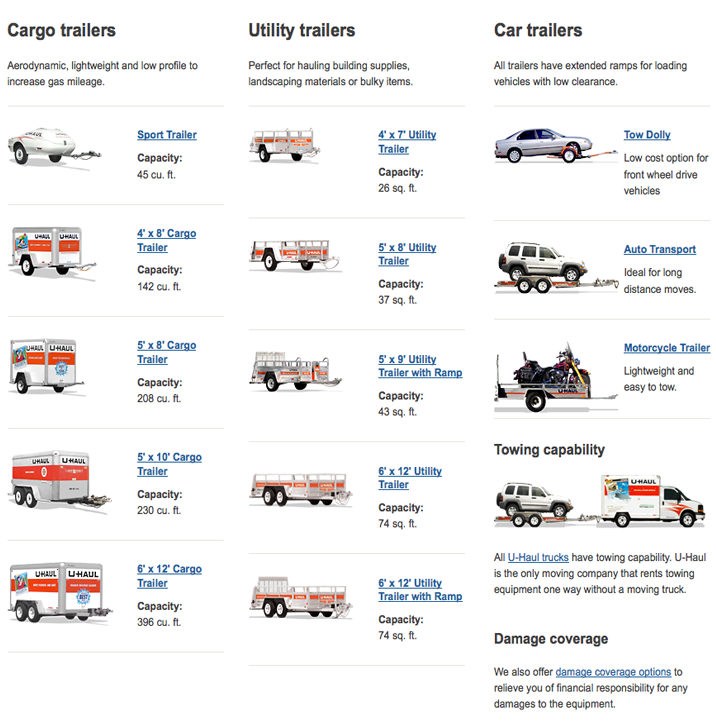
- 4’x7′ Utility Trailer: Great for small jobs like hauling garden waste, ATVs, or light equipment.
- 5’x8′ Utility Trailer: A versatile option for general hauling, small landscaping projects, or transporting motorcycles.
- 6’x12′ Utility Trailer: The largest utility option, capable of handling significant loads, including multiple ATVs, riding mowers, or large construction materials. Some models have a heavy-duty ramp.

3. Vehicle Transport Trailers
These trailers are specifically designed for moving vehicles.
- Auto Transport (Car Hauler): A full trailer designed to carry an entire vehicle (all four wheels off the ground). Ideal for long-distance moves, protecting the towed vehicle from wear and tear.
- Tow Dolly: A two-wheel trailer that lifts the front wheels of the towed vehicle off the ground, allowing the rear wheels to roll. Best for shorter distances or vehicles that can be safely towed with two wheels down.
Benefits of Using U-Haul Trailers
The appeal of U-Haul trailers extends beyond mere convenience. They offer several distinct advantages:
- Cost-Effectiveness: Often significantly cheaper than renting a full moving truck, especially for local moves or when you already own a capable towing vehicle.
- Flexibility: Available for both local and one-way rentals, allowing you to pick up and drop off at different U-Haul locations nationwide.
- Versatility: With a range of sizes and types, there’s a trailer for almost every hauling need, from personal belongings to recreational vehicles.
- Reduced Wear on Personal Vehicle (with Vehicle Transports): Using an auto transport or tow dolly prevents mileage accumulation and wear-and-tear on the vehicle being moved.
- Accessibility: Thousands of U-Haul locations make it easy to find a trailer near you, often with same-day availability.
How to Rent a U-Haul Trailer
Renting a U-Haul trailer is a straightforward process, designed for user convenience.
- Online Reservation: The easiest way to start is by visiting the U-Haul website. Enter your pickup location, desired drop-off (if one-way), dates, and the type of trailer you need. The system will guide you through available options.
- In-Person or Phone Reservation: You can also call your local U-Haul dealer or visit in person to reserve a trailer.
- Provide Vehicle Information: U-Haul will ask for details about your towing vehicle (make, model, year, VIN) to ensure it meets the minimum towing requirements for the selected trailer. This includes confirming you have the correct hitch, ball size, and working lighting hookup.
- Review Insurance Options: U-Haul offers supplemental coverage options like "Safetow®" to protect against damage to the trailer, your vehicle, and third-party property. While your personal auto insurance might cover some aspects, it’s wise to review U-Haul’s offerings.
- Pickup and Hookup: At pickup, a U-Haul representative will verify your driver’s license and help you inspect the trailer. They will often assist with hooking up the trailer to your vehicle, ensuring the hitch connection is secure, the safety chains are crossed, and the lights are functioning.
- Return: For local rentals, return the trailer to the same location. For one-way rentals, drop it off at the designated U-Haul center. Ensure it’s clean and empty.
Important Considerations & Safety Tips
Towing a trailer requires careful preparation and a different driving approach. Safety should always be your top priority.
1. Towing Vehicle Requirements
- Hitch System: Your vehicle must have a properly installed hitch receiver. U-Haul can install hitches if your vehicle doesn’t have one.
- Hitch Ball: Ensure you have the correct size hitch ball for the trailer (typically 1-7/8", 2", or 2-5/16").
- Wiring Harness: A functioning 4-pin or 7-pin wiring harness is essential for trailer brake lights, turn signals, and running lights.
- Towing Capacity: Crucially, your vehicle’s towing capacity (found in your owner’s manual) must exceed the total weight of the loaded trailer. U-Haul’s reservation system helps verify this. Never exceed your vehicle’s Gross Combined Weight Rating (GCWR).
2. Loading the Trailer
- Weight Distribution: Load heavier items first, positioning about 60% of the weight towards the front of the trailer (over the axle or slightly forward) and 40% towards the rear. This helps prevent trailer sway.
- Low Center of Gravity: Place heavy items on the floor of the trailer, not stacked high, to maintain stability.
- Secure All Items: Use moving blankets, furniture pads, and plenty of tie-downs, ropes, or cargo straps to prevent items from shifting during transit. Shifting cargo can severely impact handling and cause accidents.
3. Driving with a Trailer
- Increased Stopping Distance: Your combined vehicle and trailer will be heavier, requiring significantly more distance to stop. Maintain greater following distances.
- Wider Turns: Trailers cut corners. Make wider turns at intersections and be mindful of curbs, parked cars, and other obstacles.
- Speed Limits: Obey posted speed limits for vehicles with trailers, which are often lower than for passenger cars. Avoid sudden acceleration or braking.
- Lane Changes: Plan lane changes well in advance and ensure ample space. The trailer will extend behind you, making blind spots larger.
- Braking: For larger trailers (especially auto transports), some U-Haul trailers have surge brakes that activate automatically. Understand how they work.
- Regular Checks: During long trips, periodically pull over to check the hitch connection, safety chains, tire pressure on both your vehicle and the trailer, and the functionality of all lights.
- Weather Conditions: Be extra cautious in adverse weather (rain, snow, strong winds) as these can significantly impact handling and increase the risk of sway.
Potential Challenges and Solutions
While U-Haul trailers offer great utility, be aware of common challenges:
- Underestimating Towing Capacity: Many people overestimate what their vehicle can safely tow. Solution: Always check your vehicle’s owner’s manual and use U-Haul’s online towing calculator. If in doubt, opt for a smaller trailer or a U-Haul truck.
- Improper Loading: Incorrect weight distribution is the leading cause of trailer sway and loss of control. Solution: Spend time loading correctly, ensuring most weight is forward of the axle, and all items are secured. Watch U-Haul’s loading videos.
- Difficulties Maneuvering: Backing up with a trailer can be challenging, and overall vehicle handling changes. Solution: Practice in an empty parking lot before your trip. Take it slow, use your mirrors, and don’t be afraid to get out and look.
Practical Advice and Actionable Insights
- Book Early: Especially during peak moving seasons (summer, end of month), trailers can be in high demand. Reserve well in advance.
- Measure Your Cargo: Don’t guess! Measure your largest items and the total volume of your belongings to ensure you rent the correct trailer size.
- Understand Your Vehicle’s Limits: This cannot be stressed enough. Your safety and the safety of others depend on it.
- Pre-Trip Inspection is Key: Before hitting the road, double-check the hitch, safety chains, electrical connections, tire pressure, and lights.
- Watch U-Haul’s Videos: U-Haul provides excellent instructional videos on hooking up, loading, and driving with their trailers. Invest a few minutes to watch them.
U-Haul Trailer Typical Pricing Information
Please note: U-Haul trailer prices are dynamic and can vary significantly based on location, availability, duration of rental (local vs. one-way), demand, and current promotions. The prices below are estimated ranges for typical local and one-way rentals and should be used as a general guide only. Always obtain a precise quote directly from U-Haul for your specific needs.
| Trailer Type | Typical Sizes | Capacity (Approx. Weight / Volume) | Local Rental (Est. Price Range) | One-Way Rental (Est. Price Range) | Notes |
|---|---|---|---|---|---|
| Cargo Trailers | Enclosed, weather-protected. | ||||
| 4×8 | 4′ x 8′ x 4.5′ | 1,600 lbs / 128 cu. ft. | $14.95 – $19.95/day | $70 – $150+ | Smallest enclosed, good for light loads. |
| 5×8 | 5′ x 8′ x 5′ | 1,800 lbs / 192 cu. ft. | $18.95 – $24.95/day | $80 – $200+ | Popular, good for 1-bedroom. |
| 5×10 | 5′ x 10′ x 5′ | 2,000 lbs / 250 cu. ft. | $28.95 – $34.95/day | $100 – $250+ | Mid-size, for larger apartments. |
| 6×12 | 6′ x 12′ x 5.5′ | 2,500 lbs / 372 cu. ft. | $34.95 – $44.95/day | $120 – $350+ | Largest enclosed, low deck for easy loading. |
| Utility Trailers | Open top, good for odd-sized items, debris. | ||||
| 4×7 | 4′ x 7′ | 1,700 lbs | $14.95 – $19.95/day | $60 – $120+ | Light hauling, yard work. |
| 5×8 | 5′ x 8′ | 1,800 lbs | $18.95 – $24.95/day | $70 – $150+ | Versatile, with or without ramp. |
| 6×12 | 6′ x 12′ | 2,500 lbs | $28.95 – $34.95/day | $90 – $200+ | Heavy-duty, often with ramp for vehicles/equipment. |
| Vehicle Transport | For moving cars/trucks. | ||||
| Tow Dolly | N/A | 3,450 lbs (vehicle weight) | $40 – $55/day | $150 – $400+ | Front wheels off ground, rear wheels on ground. |
| Auto Transport | N/A | 5,290 lbs (vehicle weight) | $55 – $75/day | $200 – $800+ | All four wheels off ground, full trailer. |
- Additional Costs:
- Safetow® Coverage: Optional insurance, highly recommended (adds $8-$20+ depending on trailer/duration).
- Environmental Fee: Small fee in some areas.
- Taxes: Applicable sales taxes.
- Hitch/Wiring Installation: If your vehicle needs these, U-Haul can install them for an additional cost.
- Moving Supplies: Boxes, blankets, straps, etc., are extra.
Frequently Asked Questions (FAQ)
Q1: Do I need a special driver’s license to tow a U-Haul trailer?
A1: In most U.S. states and Canadian provinces, a standard Class D driver’s license is sufficient for non-commercial towing of U-Haul trailers. However, always check your local Department of Motor Vehicles (DMV) regulations, as weight limits or specific vehicle types might have different requirements.
Q2: Can I rent a U-Haul trailer for a one-way trip?
A2: Yes, most U-Haul cargo, utility, and vehicle transport trailers are available for one-way rentals, allowing you to pick up in one location and drop off at a different U-Haul center. One-way rates are typically higher than local daily rates.
Q3: What kind of hitch do I need for a U-Haul trailer?
A3: You need a frame-mounted receiver hitch on your towing vehicle. The hitch ball size will depend on the specific trailer type (usually 1-7/8", 2", or 2-5/16"). Your vehicle also needs a working lighting hookup (4-flat or 7-round connector) for the trailer lights. U-Haul can install hitches and wiring if your vehicle isn’t equipped.
Q4: How do I know if my car can tow a U-Haul trailer?
A4: Check your vehicle’s owner’s manual for its maximum towing capacity. U-Haul’s online reservation system also guides you through this, ensuring your vehicle meets the minimum requirements for the trailer you select. It’s crucial that your vehicle’s towing capacity exceeds the combined weight of the trailer and its cargo.
Q5: Do U-Haul trailers have brakes?
A5: Larger U-Haul trailers, particularly auto transports and some larger cargo trailers, are equipped with surge brakes. These brakes activate automatically when the towing vehicle slows down, applying braking force to the trailer wheels. Smaller trailers typically do not have independent braking systems.
Q6: What’s the difference between an Auto Transport and a Tow Dolly?
A6: An Auto Transport is a full trailer that lifts all four wheels of the towed vehicle off the ground, ideal for long distances or protecting the towed vehicle. A Tow Dolly only lifts the front two wheels of the towed vehicle, with the rear wheels remaining on the ground and rolling. Tow dollies are generally cheaper and lighter but less suitable for very long distances or specific vehicle types (e.g., some AWD/4WD vehicles).
Q7: What insurance options does U-Haul offer for trailers?
A7: U-Haul offers "Safetow®" coverage, which is a supplemental protection plan. It can cover damage to the U-Haul trailer, accidental damage to your personal vehicle, and even provide limited coverage for medical payments or property damage to third parties in an accident involving the trailer. It’s highly recommended, as your personal auto insurance policy may have limitations on trailer coverage.
Conclusion
U-Haul trailers represent an indispensable resource for countless individuals and businesses seeking efficient, affordable, and flexible hauling solutions. By understanding the different types available, recognizing the benefits, adhering to safety guidelines, and leveraging practical advice, you can confidently tackle your next moving or hauling project. While the process requires careful planning and attention to detail, U-Haul’s comprehensive support and wide range of options make it an accessible and empowering choice for anyone looking to transport their belongings or vehicles with ease. With the right preparation, a U-Haul trailer can transform a daunting task into a manageable and successful endeavor.

